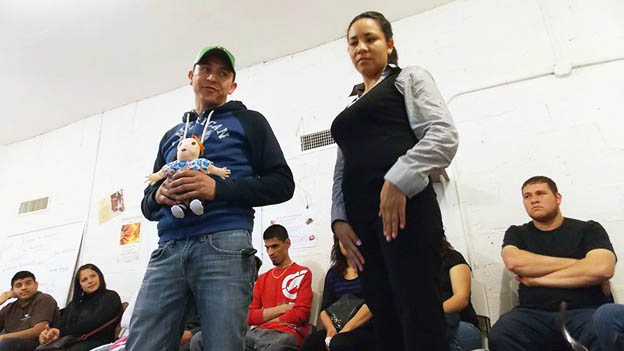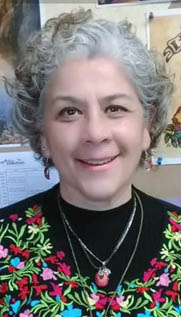The weekly newsletter of the México Solidarity Project

April 28, 2021/ This week’s issue/ Meizhu Lui, for the editorial team
Sometimes our packages have a rough transit. Heavier packages may squash more delicate ones or something we send out might fall and break on a concrete floor. Boxes can arrive ripped, corners smashed. We can only hope that parts inside haven’t broken beyond repair.
Mexican migrants endure a rough transit too. We know about the physical damage: the thirst, the hunger, the blistered feet, the beatings, the rapes. But migrants also face unseen internal trauma, the damage that makes normal human life next to impossible.
In Anapra, hardly more than a desert encampment outside of Ciudad Juarez, families who’ve had to abandon homes farther south in México arrive like damaged goods. Uprooted from everything and everyone familiar, they suffer humiliating working conditions in the local maquilas. Their attempts to organize independent unions get quashed mercilessly.
Every broken spirit generates repercussions. Fathers unable to provide for wives and children feel a shame and frustration they take out on the very people they love the most. Mothers exhausted and depressed leave their children without the hugs and smiles so necessary to a healthy upbringing. Like a garden without enough sun, these kids wither. They become pale replicas of the beautiful flowers they could be.
In Anapra, Elvia Villascas and her partner saw all this emotional damage. But they didn’t see these damaged souls as beyond repair. The programs at the Hormigas project they’ve launched have helped restore childhood to children, motherhood to mothers, and fatherhood to fathers. And U.S. groups like the San Francisco Living Wage Coalition are reaching across borders to contribute to these efforts.
The answer to the frightful conditions along the border? Not just better wages and working conditions, as sorely needed as both may be. We need to help mend broken hearts and spirits. People who learn to love themselves and others, people who find they can help themselves and others, start to feel hope. They begin to realize their dignity and their power to effect change. By supporting each other — across gender, generations, and borders — we can forge better lives for all those who labor in maquilas.

Elvia Sanchez Villescas started Las Hormigas: Comunidad en Desarollo — Ants: A Community in Development — with another former nun almost 10 years ago. Their purpose: to help dislocated, disoriented, and distressed migrant families construct a healthy community. Activists with the San Francisco Living Wage Coalition have since then joined the Hormigas network to help maquila workers gain the confidence to challenge the conditions that make barrio life so difficult. They happily count themselves as “ants”!

To read the rest of this exciting bulletin click here!